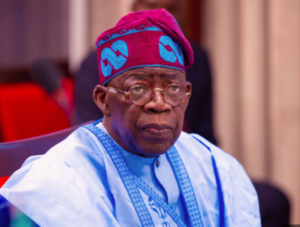
Thousands of junior doctors across the United Kingdom commenced a five-day strike on Friday, defying a last-minute appeal by Prime Minister Keir Starmer to abandon industrial action that threatens to further strain the already overstretched National Health Service (NHS).
The strike, led by junior doctors—medical practitioners below consultant level—was triggered after talks with the Labour government over a revised pay agreement collapsed late Thursday. Doctors were seen mounting picket lines outside major hospitals nationwide in protest.
The latest industrial action follows a previous acceptance of a 22.3 per cent pay increase spread over two years, negotiated shortly after Labour assumed office in September. However, the British Medical Association (BMA), representing the striking doctors, insists that real-terms pay has declined by over 21 per cent since 2008, accusing successive governments of sustained “pay erosion”.
“We are not working 21 per cent less hard, so why should our pay reflect otherwise?” stated Melissa Ryan and Ross Nieuwoudt, co-chairs of the BMA’s junior doctors committee.
Prime Minister Starmer, writing in The Times, cautioned that the strike would endanger lives, exacerbate pressures on the NHS, and undermine recent progress in public health delivery. “This strike will mean everyone loses,” he warned, urging doctors not to “follow the BMA down this damaging road”.
“Lives will be blighted by this decision. Our NHS and your patients need you,” Starmer added in a direct plea to medical professionals.
Health Secretary Wes Streeting echoed the concern in a separate letter published in The Telegraph, reiterating that the government’s fiscal position could not accommodate further pay adjustments at this time. “We simply cannot go further on pay this year,” he stated, referencing budgetary constraints.
The latest strike is reminiscent of last year’s widespread NHS walkouts, which resulted in the cancellation of tens of thousands of appointments and significant treatment backlogs. Those disruptions formed part of a broader wave of industrial unrest across both public and private sectors, driven by mounting inflation and long-standing disputes over wages and working conditions.
The Conservative Party, now in opposition, has criticised Labour’s earlier pay settlements with other public sector groups—including a 15 per cent deal over three years for train drivers—as unsustainable.
Despite Labour’s efforts to resolve inherited industrial disputes, the junior doctors’ strike signals that pay reform across critical sectors remains a formidable challenge for the new administration.




![[PHOTOS] MOK Movement Disburses ₦300,000, Distributes Food Items to the Aged in Offa During Weekly Empowerment Programme](https://newsbulletin.com.ng/wp-content/uploads/2025/10/FB_IMG_1760379043455-300x300.jpg)




